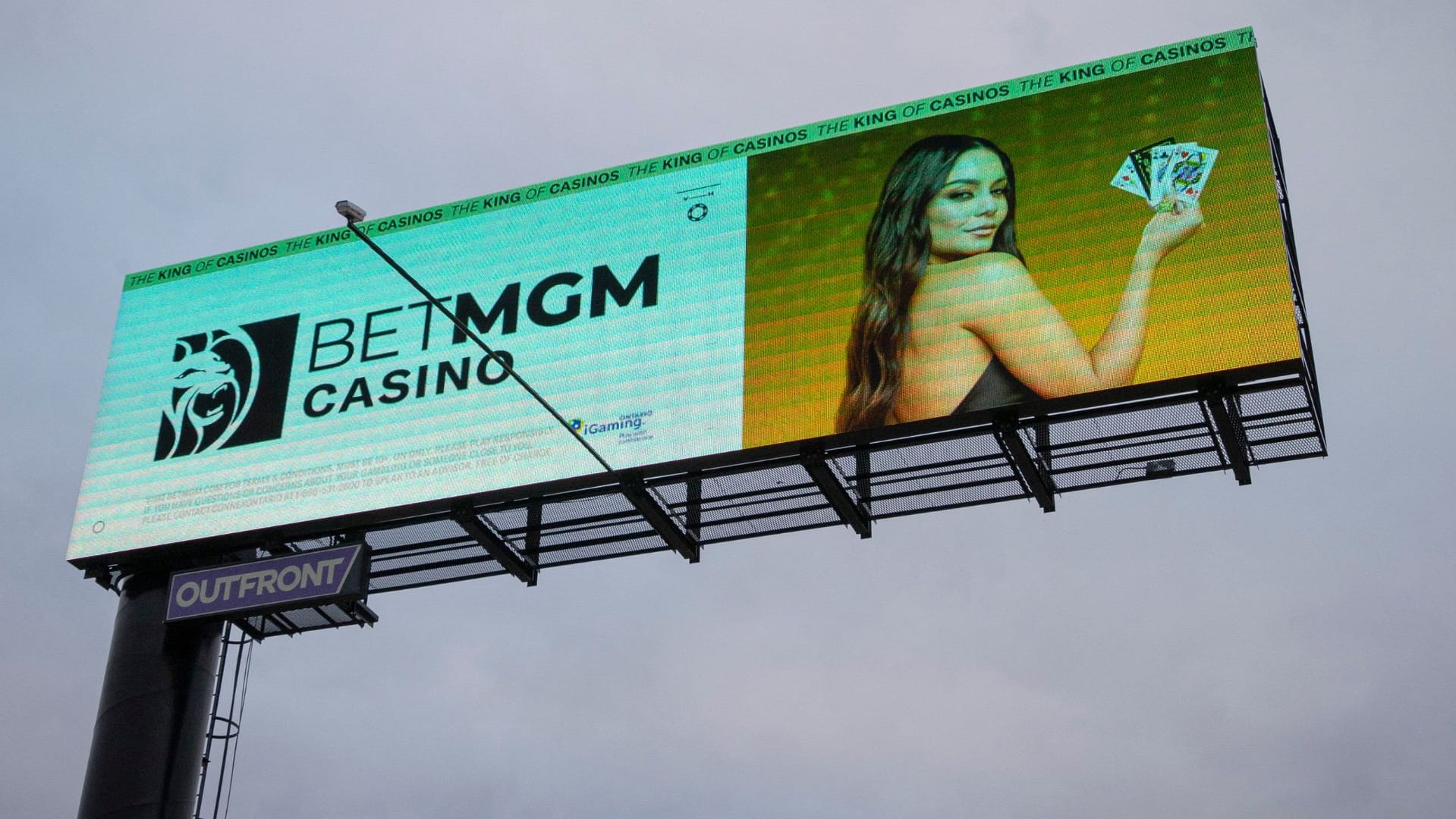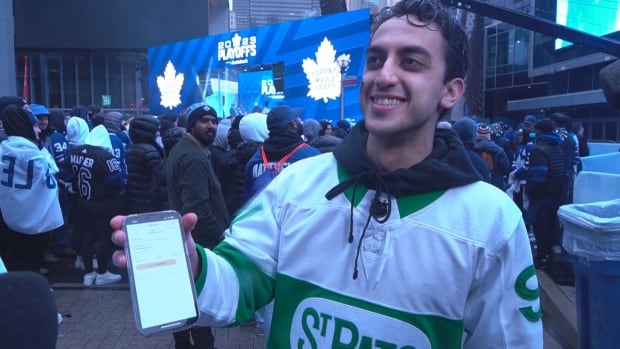
Wayne Madd woke up with a name on his mind. Call it a hunch or feeling, it was a wager he felt he had to make. Like thousands of other Canadians, the twenty-something Toronto sports fan has the betting bug and finds himself making a series of bets almost every night.
One of his favourite bets: guessing which player will score first. On this night in early May, as the Toronto Maple Leafs faced off against the Florida Panthers in an NHL playoff game, his money was on Leafs forward Noel Acciari.
“I bet $25 dollars and it’s a $650 payout. It’s going to happen. I just have a good feeling” Madd says. “I woke up this morning and I was like, Noel Acciari is going to score the first goal. Every game I bet the first goal. When I wake up in the morning, a name pops into my head and I make that bet.”
As it turns out, Madd’s premonition didn’t pan out. Accari didn’t score in what was a 4-2 loss by the Leafs in Game 1 of the team’s second-round series against the Stanley Cup-bound Panthers.
But on this rain-soaked May evening, Madd is among thousands of Maple Leaf fans who have gathered just outside the arena to watch their beloved team on a giant screen, many of them furiously glancing at their phones and then back up at the game, following the prospects of their wagers as much as they are the actions of their team.
WATCH: Gaming regulator wants to end celebrity endorsements:
Ontario’s gaming regulator is proposing an end to famous athletes and other celebrities endorsing online gambling, to make it less appealing to young gamblers who are more vulnerable to addiction.
In Ontario, there are now dozens of different betting options available. Apps are easily downloaded, and once users prove that they are over 18 and living in Ontario, there are literally thousands of bets available on dozens of different sports. Gamblers can bet on everything from an NHL playoff game in North America to a horse race in Australia. There are also countless bets available known as player props, where bettors can wager on things like how many points a player will score or how many touchdowns a quarterback might throw.
If you’ve watched a sports event on TV lately, you know its not difficult to know where to go to start betting.
“In terms of the advertising, you see the commercials all the time, like everywhere. And that’s what led me to download the app in the first place. And I’ve been using it consistently,” 26-year-old Justice Beley says. “I mainly do in-game parlays. You’re watching the game, you see who is doing well and you get better odds during the game than before.
An in-game parlay allows bettors to place wagers on games that are in progress. Betting sites keep constantly updating odds in real time based on situation of a game.
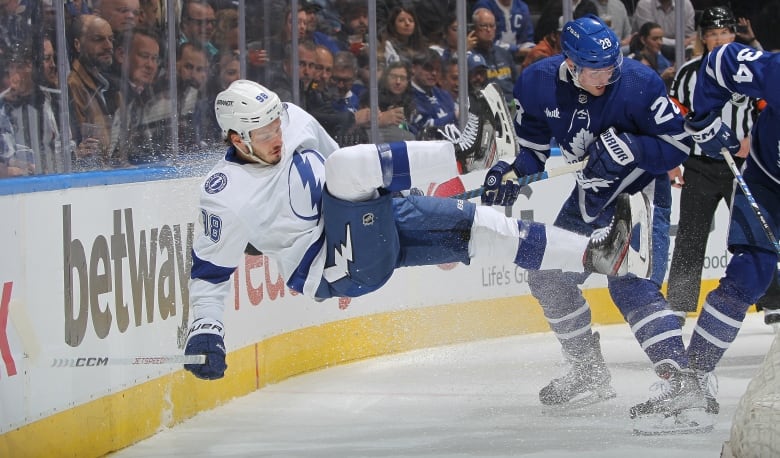
At the rear of the Square, 24-year-old Sanjay Matdein isn’t shy to share his lengthy list of bets that include the Leafs to win by two goals and defenceman Morgan Rielly to tally two or more shots on goal.
Until recently, he says betting was something that wasn’t really on his radar. It’s quickly become a key part of the game, but something he’s not entirely comfortable with.
“We have group chats where we strategize together every day, it’s become like a group activity,” he says. “It’s a slippery slope. Some people think they [might] lose, then bet double to win it back.
“The advertising is ridiculous. Especially the way the Leafs have it on the ice. They have PointsBet on the bottom board, Bet 365 on ice. Like four different competing companies doing the same thing.”
Wild West gambling environment
Over the last year, the legalization of sports gambling has quickly changed the way we watch sports on television and for many has forever changed their relationship with games they once consumed simply for entertainment.
Since 2021, when federal legislation loosened up the rules around sports betting, Ontario has gone full throttle, creating what many have called a Wild West gambling environment.
A year ago, it became the only province to regulate the dozens of mostly foreign companies, who for years had operated in a so-called grey market, allowing them to legally operate and advertise in Ontario.
No other province has done this. Most have instead tried to improve their provincial betting product in hopes of competing with companies that are still technically available for Canadians to bet with.
About a year ago, the province created a new entity called iGaming, which for the first time has offered a window into just how much people in Ontario are gambling, for the first time quantifying the amount of money that for years has flowed unchecked to offshore sites.
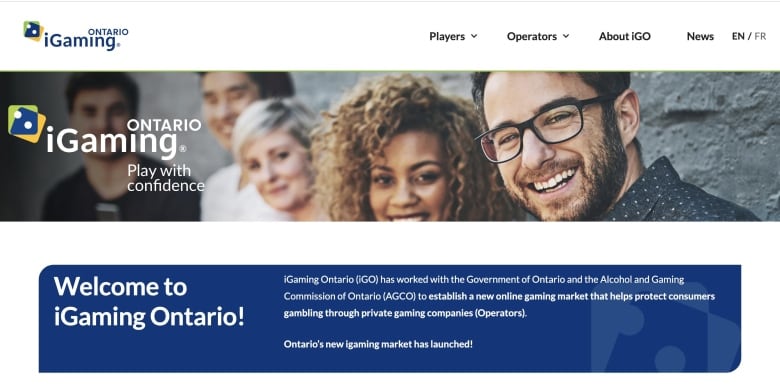
Ontario government collects $300M
So far, iGaming, has registered 45 companies which operate 76 gaming platforms which have collectively registered more than a million users. IGaming has reported numbers for its first year of existence, from April 2022 through April 2023.
In the first quarter of the year, players gambling at these licensed sites wagered a little more than $4 billion. As the amount of advertising increased throughout the year, so too did the amount of money being bet. By the fourth quarter that number had skyrocketed to nearly $14 billion.
From the amount wagered, sites licensed by iGaming reported $1.4 billion in revenue from both sport gambling and casino play. As part of the licensing agreement, Ontario collects 20 per cent, about $300 million dollars so far.
It’s too early to know what the long-term impact of Ontario’s affectionate embrace of gambling will be. Will a new generation of impressionable teenagers be enticed to try their luck? How many will develop problem gambling habits? What will the current climate do to those recovering from or in the midst of trying to overcome a gambling addiction.
In this nascent gambling environment, the data is not yet available to answer those questions but there may be some early warning signs.
Paul Burns, the president of the industry supported Canadian Gaming Association, says the changes in the Ontario market have brought a level of consumer protection, fairness and choice that didn’t exist before. It has also ushered in mandatory responsible gaming provisions.
Gambling industry point to protections
“Operators are monitoring players for risky behaviour. And it doesn’t mean a lot of money, it could be playing differently,” Burns says. “Whether they’re playing longer, maybe they are spending more money, operators are required to step in and engage with the customer.
“There’s lots of protections within the operating parameters set in Ontario that don’t exist in any other jurisdiction in this country. They’ve taken a very aggressive approach. There’s requirements in terms of responsible gaming, advertising and messaging and player protection and how you interact with players and what you can and can’t say to them.”
Rob Pizzola is a rare gambler. He actually wins more than he loses and has made a living betting on sports. He is the co-founder of BetStamp, a site that provides bettors with a snapshot of the best odds available. He also founded the Hammer Betting Network, a leading source of betting content in Canada that aims to educate people new to gambling.
Pizzola predicts that many who have been attracted to the space by the deluge of advertising flooding the airwaves will learn some hard lessons.
“It goes back to lack of education in the space and just the ego of the sports fan where it’s like, ‘Well, I watch sports, I watch the Leafs play every night. I go to the Raptors game. You can’t tell me whether or not this is a good bet or not,'” Pizzola says.
“But sports betting is more of a math problem than it is knowing sports. And if people heard that maybe it would affect their ability to bet or they would be turned off by it. But that is the truth. It’s more of a math problem than actually knowing and understanding sports. And I try to communicate that to people but they don’t want to listen.”
Pizzola is particularly concerned with the massive advertising push around in-game betting, where players can place wagers on games that are already in progress.
“The same-game parlay advertisements are borderline unethical in my opinion. They are a huge advantage for the sportsbook and their margins are massive on these bets,” Pizzola says.
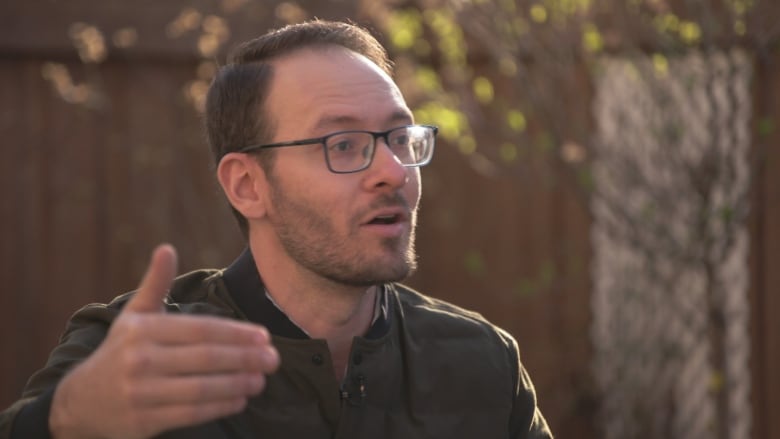
Burns says it’s up to bettors to decide which product is right for them.
“Some people love to build that same-game parlay. Some people always bet a win for the home team or their favourite team. We encourage consumers to make sure they understand their bet.”
Pizzola says in an ideal world, gamblers would educate themselves and always bet rationally and within their limits. And the industry guardrails would root out and seek to help those struggling with gambling.
“I’m not sure that they’re grasping the full picture of it. This is going to create a lot of problem gaming, that’s the reality of it,” he says. “You open up a market now to a lot of youth who are going to reach adult age. I can bet on it legally. Sure, I’ll do that. It’s no problem. I can do Interac transfer from my account, money’s in my account in 30 seconds, and they’ve never been exposed to that before. You don’t know how people are going to react.”
The Hotel Du Grace in Windsor is home to Ontario’s only residential facility dedicated entirely to problem gambling. Diana Gabriel, a long-time counselor at the facility, says what she is seeing on the frontlines is an emerging crisis as gambling becomes increasingly normalized.
“I’m seeing an increase in young men coming in with gambling problems related to sports,” she says. “We hear over and over again from our clients that the current atmosphere of sports and gambling in our society is out of hand, it’s way over the top.
“The commentators are talking gambling jargon and stats and that it triggers someone who’s not a gambler as much as someone who is a gambler. It’s going to be very dangerous.”
Gabriel says the typical clients she is seeing are mostly men in their mid-twenties, enticed by advertising, who started small but quickly spiraled out of control
“In five years, we’re going to have a whole new generation of people who have been acclimated, who have been enticed to partake in this activity without being just educated about the warning signs of it,” she says. “I think Ontario, Canada is going to face some pretty serious problems.”
One of Gabriel’s current clients is Tank (not his real name), a man in his mid-twenties desperate to escape the grip of sports gambling. He says he has been gambling since he was a teenager, his betting becoming more intense in recent years. He has tried to quit on at least three occasions, relapsing each time. He says he hasn’t placed a bet for 35 days.
“I think I knew I had a problem when I started lying about my gambling, when I started hiding my losses and hiding it with the wins, saying it’s not a big of a problem,” says Tank, who estimates he’s lost at least $12,000. “I also knew when I wasn’t comfortable sharing my financial accounts or our stats with my partner. And at the point where I kept using my credit card and it was maxed out.”
Tank knows that getting back on his feet and rebuilding his life is going to be a struggle. He says it’s even more difficult when promises of the next big win are seemingly everywhere.
“I would say it’s been extremely difficult. Even if it’s not sports related, the ads are always in my face — on any platform, social media, on my phone, computer, or any website at all, wherever they can put it as much. It’s always reminding me of the gambling,” he says.
If anybody can relate to Tank’s story, it’s Noah Vineburg. He hasn’t placed a bet in five years after the Windsor program finally helped him kick an addiction that cost him a million dollars and consumed his life for years.
Vineburg says the last year has been difficult and he can’t even imagine what it must be like for people like Tank.
Call for banning celebrity endorsements
“This last year and a half of recovery is as hard, if not harder, than when I came out of the program in Windsor,” says Vineburg, who lives with his family in Ottawa. “It’s just there’s so much you’re banged over the head with it. I can’t imagine what somebody’s coming out of that program tomorrow is going to feel. It’s going to be next to impossible.”
Vineburg is among a growing chorus of voices saying the promotion and normalization of gambling needs to be dialed back.
One group called The Ban Ads For Gambling wants all advertising that promotes gambling to be removed entirely. The group has attracted several high profile supporters including Olympian Clara Hughes and Karl Subban, father of three boys who have all played professional hockey.
“They catch the attention of young people,” Subban told CBC radio of the ads. “It’s a powerful way of marketing to them, which we know can have a harmful effect on young people realizing their potential and really reaching their dreams.”
Some are calling for an outright ban on gambling advertisements, while others say the use of celebrity endorsers such as Edmonton Oilers star Connor McDavid and retired great Wayne Gretzky should be outlawed. Others say, at minimum, there needs to be more of a balance between ads promoting gambling and those talking about a responsible approach.
The Alcohol and Gaming Commission of Ontario, which regulates the rules around gambling advertising, said it is reviewing the role of athletes and celebrities.
Burns insists the industry is listening and predicts people will notice some changes soon, especially when it comes to the frequency of gambling ads.
“They don’t want to upset their customers. They don’t want to make people turn the channel. They don’t want to do that,” Burns says. “There’s a lot of surveys of audiences going on right now and they will make decisions to reflect what they are hearing.”
He also says there could be a shift in how celebrities are used in gambling advertising.
“If they talked about responsible gaming, talked about how to interact with the product versus just lending their name and likeness. So there’s lots of discussion around maybe if that’s a solution.”
